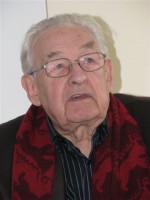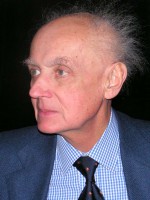Stanisława Celińska est une Actrice Polonaise née le 29 avril 1947 à Varsovie (Pologne)
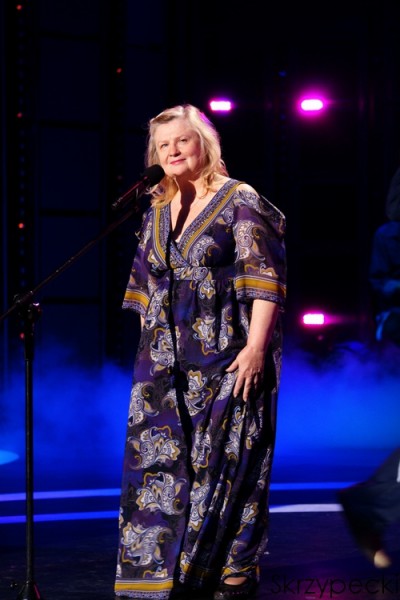
Source : Wikidata
Stanisława Celińska

Filmographie de Stanisława Celińska (14 films)
Actrice
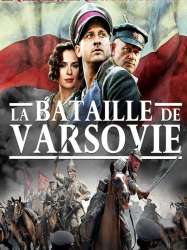 , 1h50
, 1h50Réalisé par Jerzy Hoffman
Origine Pologne
Genres Drame, Guerre, Comédie musicale, Historique
Acteurs Daniel Olbrychski, Borys Szyc, Natasza Urbańska, Marian Dziędziel, Bogusław Linda, Olga Kabo
Rôle Madame Zdzisia
Note44%





Le poète polonais Jan Krynicki (Borys Szyc), à la veille de son départ au combat avec l'armée polonaise comme uhlan (lancier), épouse l’actrice Ola Raniewska (Natasza Urbańska). Le mariage est célébré par l’abbé Ignacy Skorupka (Łukasz Garlicki).

Katyń (2007)
, 1h58Réalisé par Andrzej Wajda
Origine Pologne
Genres Drame, Guerre, Historique
Thèmes Politique, La prison, Politique
Acteurs Maja Ostaszewska, Andrzej Chyra, Danuta Stenka, Paweł Małaszyński, Wiktoria Gąsiewska, Wiktoria Gąsiewska
Rôle Stasia, l'employée de famille du général
Note69%





Le film nous présente le massacre de Katyń du point de vue des vivants, c'est-à-dire du point de vue des épouses et des mères qui ont attendu des années avant de savoir ce qu'étaient devenus les officiers polonais arrêtés par l'armée soviétique en 1940. Il s'arrête aussi sur l'après-guerre, montrant l'entreprise de falsification de l'histoire menée par le pouvoir communiste et les tentatives de certains proches des victimes pour défendre la vérité. Ce n'est que dans la dernière scène que Wajda met un terme à toutes altérations de l'histoire en montrant les assassinats du point de vue des victimes.
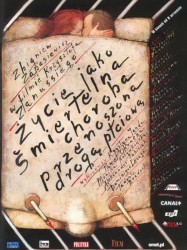 , 1h36
, 1h36Réalisé par Krzysztof Zanussi
Origine Pologne
Genres Drame
Acteurs Zbigniew Zapasiewicz, Krystyna Janda, Jerzy Radziwiłowicz, Anna Mucha, Szymon Bobrowski, Redbad Klijnstra-Komarnicki
Rôle UAP woman in hospital
Note69%





Tomasz apprend qu'il a une maladie mortelle. Il demande son ex-femme Anna de financer son opération à Paris. Mais il est déjà trop tard pour guérir. Il n'est lui reste qu'attendre la mort et trouver quelqu'un qui aiderait de comprendre et accepter l'évanescence.

Cwal (1996)
, 1h44Réalisé par Krzysztof Zanussi
Genres Drame, Comédie, Historique
Acteurs Maja Komorowska, Piotr Adamczyk, Stanisława Celińska, Agnieszka Warchulska, Jan Prochyra
Rôle Justyna Winewar
Note65%





A young boy in post-World War II, Communist-dominated Poland, whose father's decision to remain in Britain after the war has made his family politically-suspect with the local Party authorities, is sent by his mother to stay with an "aunt" (in reality an old family friend) in the capital, Warsaw. Ida is a strong-willed, single, middle-aged woman who has found her own ways of surviving in the Communist-run society (which sometimes involves her charming powerful older men, as well as maintaining two different sets of identity papers). She gets Hubert admitted to one of the city's best schools by portraying him as the orphan of a war hero. But she also shares with him her own passion for horses, at a time when riding is seen by many officials as a relic of the old aristocratic class. Hubert himself, meanwhile, struggles to understand how it can be right for a good Catholic to lie in order to survive under Communism.

Panna Nikt (1996)
, 1h38Réalisé par Andrzej Wajda
Origine Pologne
Genres Drame
Acteurs Anna Mucha, Stanisława Celińska, Leszek Teleszyński, Małgorzata Pieczyńska, Anna Romantowska
Rôle Ewa
Note58%






Faustyna (1995)
, 1h15Genres Drame
Acteurs Dorota Segda, Danuta Szaflarska, Teresa Budzisz-Krzyżanowska, Stanisława Celińska
Note64%






Genres Drame
Acteurs Adam Ferency, Stanisława Celińska, Leon Niemczyk, Piotr Pawłowski, Wiesława Mazurkiewicz
Rôle Postwoman
Note72%





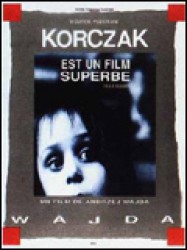
Korczak (1990)
, 1h55Réalisé par Andrzej Wajda
Origine Pologne
Genres Drame, Guerre, Biographie, Historique
Thèmes Religion, Politique, Religion juive
Acteurs Wojciech Pszoniak, Aleksander Bardini, Ewa Dałkowska, Anna Mucha, Agnieszka Krukówna, Teresa Budzisz-Krzyżanowska
Rôle vendeuse
Note73%





Le film se passe pendant la Seconde Guerre mondiale, en 1942, dans le ghetto de Varsovie. Janusz Korczak a la charge de plusieurs centaines d'orphelins : il doit subvenir à leurs besoins dans des conditions très difficiles. On peut voir, par exemple, sur des photos d'époque prises dans ces orphelinats, que les enfants étaient pieds nus.
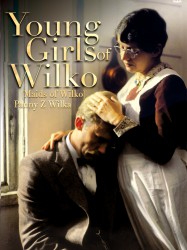
Les demoiselles de Wilko (1979)
, 1h58Réalisé par Andrzej Wajda
Origine Pologne
Genres Drame, Romance
Acteurs Daniel Olbrychski, Anna Seniuk, Maja Komorowska, Stanisława Celińska, Krystyna Zachwatowicz-Wajda, Christine Pascal
Rôle Zosia
Note73%





En 1929, un homme retrouve la maison où, quinze ans plus tôt il passa un été avec cinq jeunes filles.

Nuits et Jours (1975)
, 10h32Réalisé par Jerzy Antczak
Origine Pologne
Genres Drame, Guerre
Acteurs Jadwiga Barańska, Jerzy Bińczycki, Beata Tyszkiewicz, Tadeusz Fijewski, Ewa Dałkowska, Andrzej Seweryn
Rôle Agnieszka Niechcic
Note73%





Nights and Days is a family saga of Barbara Ostrzeńska-Niechcic, (played by Jadwiga Barańska) and Bogumił Niechcic, (played by Jerzy Bińczycki) against the backdrop of the January Uprising of 1863 and World War I. The film is a rather straightforward and faithful adaptation of a novel by Maria Dąbrowska with the same title. The plot is woven around the changing fortunes of a noble (upper-class) Niechcic family in the pre-WWI Poland. There are two main crossing threads: a social history one and an existential one. The cinematographic version is a condensation of the 12 part award winning TV serial of the same title and using the same cast and producers.
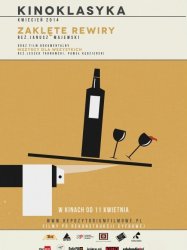
Zaklęte rewiry (1975)
, 1h34Réalisé par Janusz Majewski
Genres Drame
Acteurs Marek Kondrat, Čestmír Řanda, Stanisława Celińska, Jaroslava Schallerová, Włodzimierz Boruński, Czesław Wołłejko
Rôle Hela
Note71%





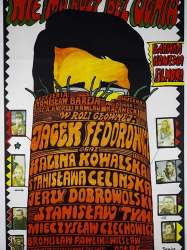
Nie ma róży bez ognia (1974)
, 1h31Genres Comédie
Acteurs Jacek Fedorowicz, Stanisław Tym, Stanisława Celińska, Mieczysław Czechowicz, Wiesław Gołas, Bronisław Pawlik
Rôle Lusia
Note73%





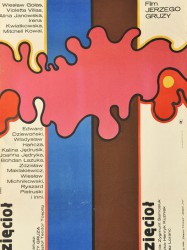
Dzieciol (1971)
, 1h25Genres Comédie
Acteurs Wiesław Gołas, Irena Kwiatkowska, Władysław Hańcza, Violetta Villas, Alina Janowska, Wiesław Michnikowski
Rôle Małgosia (voice) (uncredited)
Note62%






Paysage après la Bataille (1970)
, 1h41Réalisé par Andrzej Wajda
Origine Pologne
Genres Drame, Guerre, Historique, Romance
Acteurs Daniel Olbrychski, Aleksander Bardini, Stanisława Celińska, Tadeusz Janczar, Zygmunt Malanowicz, Mieczysław Stoor
Rôle Nina
Note69%





The Landscape After the Battle film tells a story of two young concentration camp survivors. A young Polish poet (Tadeusz) is asked by a pretty Jewish girl (Nina) to go with her to the West. His camp experience, however, prevents him from realizing the depth of her love for him, and he is reluctant to commit. The woman is accidentally shot dead by an American soldier, causing the poet to cry for the first time in years. The shock of her death brings back the world of feelings suppressed by his Nazi captors, and allows for his original creativity to reemerge.
 Connexion
Connexion
